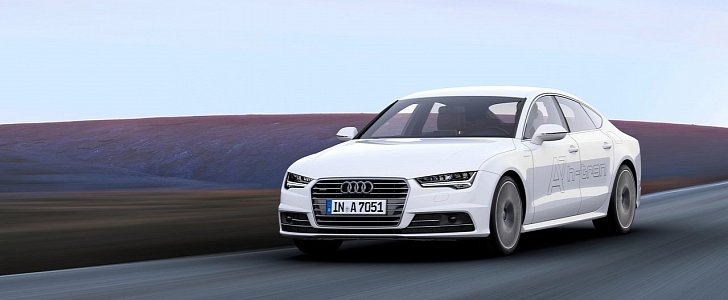As we all know, Volkswagen - both the brand and the group as a whole - is busy reinventing itself these days, churning out electric concepts that will actually turn into production versions for a change and announcing investments the size of a small country's GNP in developing the technology and infrastructure necessary to support the EV push.
The company must show its dedication to the use of clean propulsion after having its name tarred by the diesel emissions scandal. The two solutions most manufacturers embrace these days are battery-powered electric vehicles and those that use an onboard liquid hydrogen fuel cell to generate electricity. While the debate between the two is still ongoing, the former appears to be gaining more and more ground, and Volkswagen might have just tilted the balance for good.
Toyota, Honda, and Hyundai are the first three names associated with the fuel cell alternative, but others - like Mercedes-Benz, for example - are still toying with the idea. There's one brand even inside the Volkswagen Group that gave it a try, and we're thinking here of Audi. However, if the CEO is to be believed, it certainly appears like the technology is going to take a back seat to the battery-powered vehicles. Way back, in the third row.
During his address at the Frankfurt Motor Show, Matthias Muller briefly mentioned Audi's fuel cell models, saying they would arrive "one of these days." Another clear example of where the company's priorities lie was the onslaught of electric Audi concepts in Frankfurt, as well as the imminent launch of the first real e-tron model, the Quattro electric SUV.
"The worst thing you can do is kind of half bake electric, then go off on another science project with fuel cells, then go running to another science project," Scott Keogh, president of Audi of America, told Automotive News. In other words, the Volkswagen Group is fully dedicated to its EV ambitions at the moment, so nobody should expect the German giant to support the expansion of the infrastructure needed for fuel cell vehicles.
The company will, however, invest $2 billion over ten years in the U.S.A. alone to build a network of competitive fast-charging stations for long-distance traveling, much like what Tesla has done with its Superchargers.
Volkswagen is actually well within the trend after both Toyota and Hyundai said their companies would switch focus from fuel cells to battery-powered EVs over the coming years, with the technology's only remaining supporter now being the Japanese at Honda.
It looks like the industry has made its mind on where tomorrow's electric vehicles will get their power from, and everyone still betting on hydrogen fuel cells is essentially swimming against the current.
Toyota, Honda, and Hyundai are the first three names associated with the fuel cell alternative, but others - like Mercedes-Benz, for example - are still toying with the idea. There's one brand even inside the Volkswagen Group that gave it a try, and we're thinking here of Audi. However, if the CEO is to be believed, it certainly appears like the technology is going to take a back seat to the battery-powered vehicles. Way back, in the third row.
During his address at the Frankfurt Motor Show, Matthias Muller briefly mentioned Audi's fuel cell models, saying they would arrive "one of these days." Another clear example of where the company's priorities lie was the onslaught of electric Audi concepts in Frankfurt, as well as the imminent launch of the first real e-tron model, the Quattro electric SUV.
"The worst thing you can do is kind of half bake electric, then go off on another science project with fuel cells, then go running to another science project," Scott Keogh, president of Audi of America, told Automotive News. In other words, the Volkswagen Group is fully dedicated to its EV ambitions at the moment, so nobody should expect the German giant to support the expansion of the infrastructure needed for fuel cell vehicles.
The company will, however, invest $2 billion over ten years in the U.S.A. alone to build a network of competitive fast-charging stations for long-distance traveling, much like what Tesla has done with its Superchargers.
Volkswagen is actually well within the trend after both Toyota and Hyundai said their companies would switch focus from fuel cells to battery-powered EVs over the coming years, with the technology's only remaining supporter now being the Japanese at Honda.
It looks like the industry has made its mind on where tomorrow's electric vehicles will get their power from, and everyone still betting on hydrogen fuel cells is essentially swimming against the current.


























